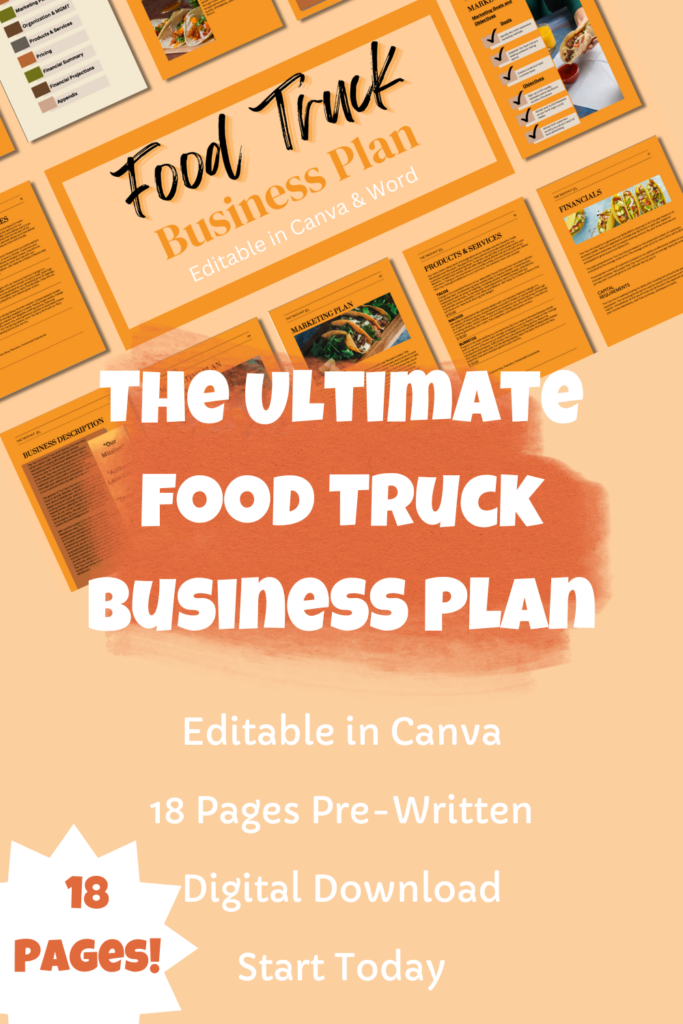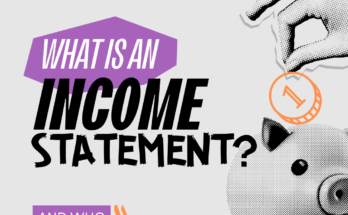Starting a food truck business can be an exciting and rewarding venture, but without a well-crafted business plan, even the most delicious cuisine may struggle to find success. A business plan serves as a roadmap for your food truck, outlining your goals, strategies, and financial projections. In this article, we’ll explore the importance of a business plan, the challenges that come with writing one, and the three essential steps to creating the perfect food truck business plan.
Why You Need a Business Plan.
- Business Roadmap: A well-thought-out business plan acts as a comprehensive roadmap for your food truck venture. It helps you define your business objectives, target market, and operational strategies. Having a clear plan in place ensures that you stay focused on your goals and have a solid foundation to make informed decisions.
- Funding: Whether you are seeking investors, loans, or any other form of funding, a business plan is a crucial document that potential stakeholders will ask for. It demonstrates your commitment, professionalism, and the viability of your food truck business, making it more likely to attract financial support.
What Makes Writing a Business Plan Difficult.
- Lack of Knowledge of What’s Included: For many aspiring food truck entrepreneurs, the process of writing a business plan can be daunting simply because they are unsure about the essential components it should include. From market analysis and competitive research to financial projections and marketing strategies, there are various elements to consider.
- Time-Consuming: Crafting a comprehensive business plan requires time and effort. As an entrepreneur, you have many tasks on your plate, and dedicating the necessary hours to research, analyze, and write a business plan can be challenging.
- Lack of Clear Writing Skills: Communicating your ideas effectively is vital when writing a business plan. If you struggle with conveying your thoughts clearly and concisely (as a lot of people do), putting together a polished and persuasive document may pose difficulties.
How Can you Write the Perfect Food Truck Business Plan? Here are 3 Steps That Will Get You on Your Way.
- Research Thoroughly
- Answer The W’s (What, Where, Why)
- Use A Template
1. Research Thoroughly
Before putting pen to paper, conduct extensive research to gather all the necessary information for your food truck business plan. Key areas to focus on include:
- Location: Research potential locations for your food truck based on foot traffic, drive-by visibility, and the presence of other food vendors. The right location can significantly impact your success. Your local municipality may offer information on the area’s demographics and traffic patterns. If so, this is an easy way to access which areas may work well. Business brokers (People who facilitate the purchase or sell of a business) and landlords may also have access to similar information.
- Pricing: Analyze the pricing strategies of competitors and determine how you will set your prices to remain competitive while ensuring profitability. You can work with a food distribution company to help you determine the cost of goods. This will help you determine your pricing.
- Traffic By Foot and Drive By: Understanding foot traffic patterns and drive-by visibility in your chosen locations will help you identify peak times and plan your operations accordingly. If information is not readily available, try allotting time to observe traffic in your desired area. Pick a business and observe the number of customers it gets over a period of time. Do this several times at different times of day to get an idea of typical traffic potential.
- Advertising Methods: Explore different advertising methods such as social media, local events, and collaborations with other businesses. Determine which ones align best with your target audience and budget. Identify a successful food truck on other business in the area. Research what types of advertising and marketing they use to bring in customers.
2. Start With The W’s
The foundation of your business plan lies in answering the essential W questions:
- What type of business: Clearly define the nature of your food truck business, the cuisine you’ll offer, and any unique selling points that set you apart from other food trucks.
- Why are you starting this business: Identify your motivations, goals, and vision for the food truck venture. Understanding your purpose will help guide your decisions throughout the journey.
- Who are you: Introduce yourself and your team, highlighting relevant experience and expertise in the food industry or entrepreneurship.
- Who are your customers: Define your target audience, their preferences, and the demand for your food truck’s offerings in the chosen locations.
- Where will you be located: Specify your primary and potential secondary locations and explain the reasoning behind your choices.
- Why did you choose that location: Provide insights into how each location aligns with your target market and overall business strategy.
- What advertising methods will you use: Outline your marketing strategies, including digital and traditional approaches, to attract and retain customers.
- Why did you choose those advertising methods: Justify your chosen marketing strategies with research and data, explaining how they will effectively reach your target audience.
- What types of food: Describe your food offerings, menu items, and any unique twists that make your cuisine stand out.
- What types of ingredients: Emphasize the quality and sourcing of your ingredients, as it can be a differentiating factor in the competitive food truck market.
- What makes you different from other food trucks: Clearly state your competitive advantage and how you plan to position your food truck to outshine competitors.
The W questions above are just a few questions you can answer to give your plan more depth. The more W questions you can think of and answer, the better.
Use A Template
To simplify the process of creating a business plan, consider using a template. Templates provide a structured framework and save you time by guiding you through each section of the plan. Here are some options to consider:
- Canva Templates: Canva offers a variety of customizable templates that you can use to create visually appealing business plans.
- Microsoft Word and Microsoft Excel Templates: Microsoft Office provides basic form templates that you can easily tailor to suit your food truck venture.
- The Smart Upstart Food Truck Business Plan Template: This specialized template is designed specifically for food truck businesses. It comes with a pre-written plan ensuring that you cover all the essential aspects relevant to the industry.
Using a template saves time and money. In some instances they may have pre-written text that you can easily edit to fit your business idea. Pre-written text serve as good starter points and they help you find the language that describes your business.
Conclusion
In conclusion, crafting a well-structured and comprehensive food truck business plan is a crucial step for any aspiring entrepreneur in the food industry. The business plan serves as a roadmap, guiding you through the complexities of starting and running a food truck business. By thoroughly researching your market, defining your objectives, and outlining your strategies, you can increase the likelihood of success and effectively communicate your vision to potential investors and stakeholders.
Remember that every food truck business plan will be unique to its owner’s vision and goals. Tailor your plan to reflect your creativity, passion, and dedication to delivering delicious meals to your customers. With a well-prepared food truck business plan, you’ll be better equipped to navigate the competitive culinary landscape and make your mark in the industry.






Dear Website Owner,
I hope this email finds you well. I recently discovered your website and was impressed by the quality of your content and the helpful information you offer to your audience. In light of this, I would like to propose a backlink exchange that could benefit both our websites.
My website, https://m.cheapestdigitalbooks.com/, is focused on providing affordable digital books to readers around the world. We currently have a strong online presence with a Domain Authority (DA) of 13, a Page Authority (PA) of 52, and a Domain Rating (DR) of 78. Our website features 252K backlinks, with 95% of them being dofollow, and has established connections with 5.3K linking websites, with 23% of these being dofollow links.
I believe that a mutually beneficial backlink exchange could be of great value for both of our websites, as it may lead to an increase in website authority and improve our search engine rankings. In this collaboration, I am willing to add backlinks from my website using your desired keywords and anchor texts. In return, I would be grateful if you could include backlinks with my desired keywords and anchor texts on your website.
I kindly request that you visit my website, https://m.cheapestdigitalbooks.com/, to get a sense of the potential benefits this partnership could bring to your site. I am confident that this collaboration will provide a win-win situation for both parties, and I look forward to learning more about your thoughts on this proposal.
Thank you for considering my offer. I am excited about the potential growth this partnership may bring to our websites and am eager to discuss the details further. Please do not hesitate to reach out to me at your convenience.
Best regards,
David E. Smith
Email: david@cheapestdigitalbooks.com
Address: 3367 Hood Avenue, San Diego, CA 92117